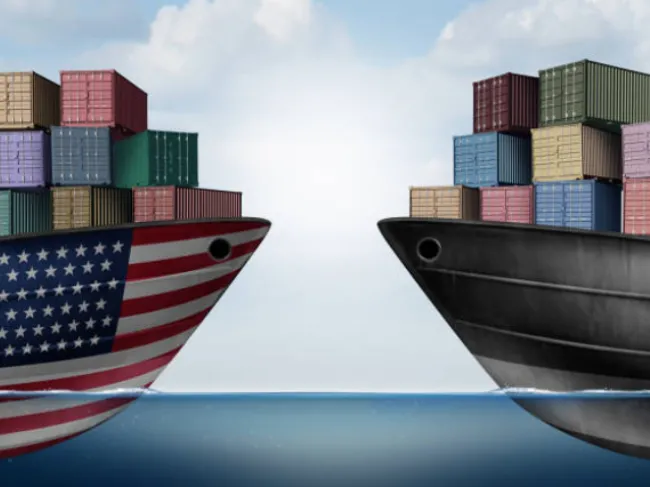Donald Trump renewed his attacks on trade this week, announcing new tariffs with China and extending his steel and aluminum tariffs to previously exempted Europe. Since this is Trump, it’s certainly possible that this is another example of “maximum pressure” designed to get some sort of concession. Should this represent a genuine long-term embrace of protectionist trade policy though, American consumers will pay the price.
Of course none of this is surprising; it’s what he explicitly campaigned on. (Unfortunately he’s been more willing to deliver on these promises than his attacks on the Fed.) It’s worth pointing out, however, that Trump’s critics – though correct in their criticism of his tariffs – often over-romanticize the global view of free trade pre-Trump. Nothing illustrates this better than the reaction to Trump’s moves.
After all, for all the flowery talk of leaders like Xi and Merkel of their dedication to free trade, their reaction to Trump’s tariffs have been to push tariffs of their own. China has tailored their retaliation to impact Trump’s voter base, while European Commission President Jean-Claude Juncker has threatened to make American icons like blue jeans and bourbon victims in an escalating trade war. Their willingness, however, to respond to bad policy with more bad policy highlights the truly shallow grasp of the benefits of trade.
Just as it does not benefit a country to respond to a neighbor increasing its own taxes to follow suit, retaliating to a new US tariffs by implementing one of their own only serves to hurt their own citizens. This is why Austrians have long lauded the benefits of unilateral free trade, while acknowledging the long term goal is genuine global free trade among all. To quote Louis Rouanet:
Instead of a top-down promotion of “free trade” driven by supranational institutions, we should consider unilateral free trade as an important part of a liberal political agenda. Sir Robert Peel, when announcing the repeal of the Corn Laws in the House of Commons in 1846, brilliantly warned: “I trust the government ... will not resume the policy which they and we have found most inconvenient, namely the haggling with foreign countries about reciprocal concessions, instead of taking that independent course which we believe to be conducive to our own interests. ... Let, therefore, our commerce be as free as our institutions. Let us proclaim commerce free, and nation after nation will follow our example.”
Unilateral free trade is a boon for both parties involved in trade regardless of whether or not one of them continues to impose tariffs. For those engaged in unilateral free trade, free trade means they need to export less to import more. In other words, it makes the free traders richer.
Naturally the global reaction to Trump’s tariffs is as unsurprising as the tariffs themselves. After all, while Merkel may have saw herself as the defender of the “liberal world order,” what she and the “globalists” Trump loves to rail against was really a “neoliberal” status long departed from the ideas of true classical liberals like Ludwig von Mises. For them, and their preferred presidential candidate, the aim is not “free trade” but managed trade – and the differences there are significant.
Of course, that powerful governmental bodies are acting hypocritical to their stated values is the least surprising move of them all.


